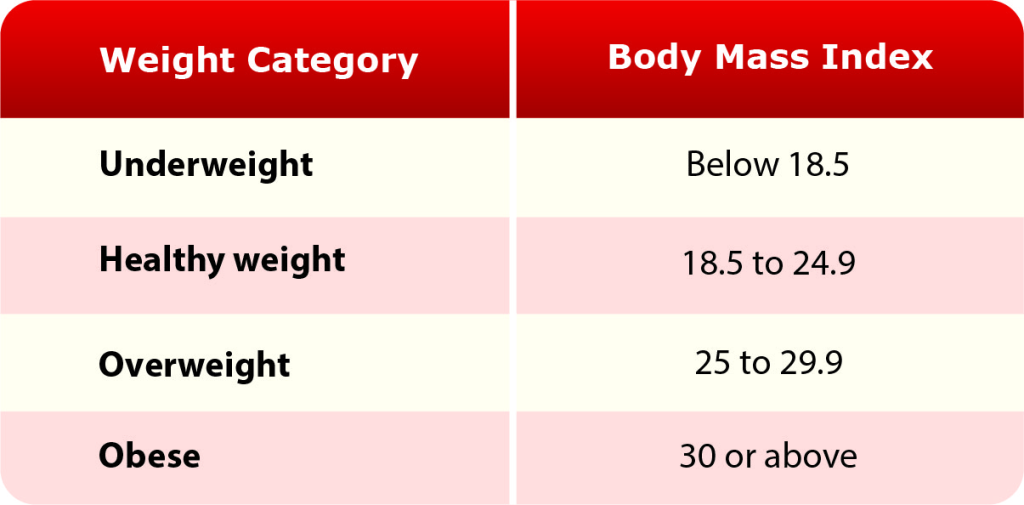

Overweight and obesity are conditions characterized by excessive accumulation of body fat, to the extent that it may have adverse effects on health. They are typically assessed using body mass index (BMI), which is calculated by dividing a person’s weight in kilograms by the square of their height in meters (kg/m²).
BMI Categories
- Underweight: BMI less than 18.5
- Normal weight: BMI 18.5 to 24.9
- Overweight: BMI 25 to 29.9
- Obesity: BMI 30 or higher
Causes
Overweight and obesity result from a combination of genetic, environmental, and behavioral factors:- Genetics: Some people may have a genetic predisposition to gaining weight more easily than others.
- Dietary habits: Consuming high-calorie, low-nutrient foods and beverages, such as fast food, sugary drinks, and processed snacks.
- Physical inactivity: Sedentary lifestyles with little to no regular physical activity can contribute to weight gain.
- Environmental factors: Access to unhealthy foods, limited access to safe places for physical activity, and built environments that discourage walking or biking can all contribute to weight gain.
- Psychological factors: Stress, emotional eating, and lack of sleep can all influence weight.
- Medical conditions: Certain medical conditions or medications can contribute to weight gain, such as hypothyroidism, polycystic ovary syndrome (PCOS), and certain antidepressants or antipsychotic medications.
Health Risks:
Overweight and obesity are associated with numerous health risks and complications, including:- Type 2 diabetes: Obesity is a significant risk factor for type 2 diabetes.
- Cardiovascular diseases: Including heart disease, stroke, and hypertension.
- Respiratory problems: Such as asthma.
- Joint disorders: Such as osteoarthritis.
- Fatty liver disease: Including non-alcoholic fatty liver disease (NAFLD).
- Certain cancers: Including breast, colon, and endometrial cancer.
- Psychological and social effects: Including depression, low self-esteem, and social stigma.
Prevention and Management:
Preventing and managing overweight and obesity involves lifestyle modifications aimed at achieving a healthy weight:- Healthy eating habits: Focus on consuming a balanced diet rich in fruits, vegetables, whole grains, and lean proteins, while limiting processed foods, sugary snacks, and high-calorie beverages.
- Regular physical activity: Aim for at least 150 minutes of moderate-intensity aerobic activity or 75 minutes of vigorous-intensity activity per week, along with muscle-strengthening exercises on two or more days per week.
- Behavioral changes: Such as mindful eating, stress management techniques, and setting realistic goals for weight loss or weight maintenance.
- Medical intervention: In some cases, medical interventions such as weight-loss medications or bariatric surgery may be recommended for individuals with severe obesity or obesity-related health complications.
